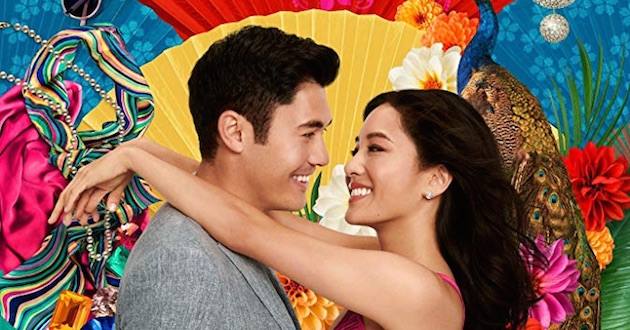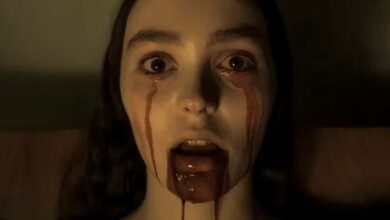Crazy Rich Asians an updated Cinderella

Eleanor Young is not crazy. She’s also not to be trifled with. Just ask anyone who’s ever mistaken her quiet demeanor for passivity.
Take, say, the manager of a posh London hotel back in 1995, who tried to tell her that the room she’d reserved for her family wasn’t available. One phone call later, she owned the place. Suffice it to say that she got the room she’d reserved.
Back in the present, Eleanor’s son, Nick, is the apple of her eye. But he’s weary of the burden that comes with being the heir apparent to the Young family’s sprawling business empire in Singapore. Though Nick’s practically treated like a rock star in his home country, he’s managed to live a bit more under the radar in New York City for the last several years.
There, he met and fell in love with Rachel Chu, an economics professor at Columbia University and daughter of a hardworking single mom. Somehow, Rachel doesn’t know that Nick’s practically a crown prince, metaphorically speaking, in his home country. No, to her, Nick’s just a polite, attractive, attentive boyfriend.
Just a normal guy. Just like she’s a normal girl.
Rachel’s thrilled that Nick has invited her to travel with him to Singapore to attend his best friend Colin’s wedding, in which Nick will be the best man. After all, whenever Rachel has tried to talk with Nick about his family, he’s been pretty quick to change the subject. Now she’s finally going to have a chance to meet them.
Rachel’s first clue that Nick hasn’t quite told her everything about himself comes when they get on the plane … and get a private suite. And champagne. And silk pajamas for the long trip.
Nick tries to explain. “Yes, my family has money,” he says modestly. “I’ve always thought of it as theirs, not mine.”
But though Nick’s sought to distance himself from his rich relatives, his family has all kinds of plans about his triumphant return to Singapore. Plans that—as Rachel soon discovers—don’t include him spending the rest of his life with a “poor” Chinese-American girlfriend. At least as far as his domineering mother, Eleanor, is concerned, that is.
But slowly, Rachel begins to win over key members of Nick’s “crazy rich Asian” family—perhaps even beginning to thaw the ice-hard heart of Eleanor Young herself.
Despite the complex cultural world that Rachel finds herself immersed within, the core story here is straightforward: Nick and Rachel’s attempts to earn Eleanor’s relational blessing.
But Eleanor is no easy sell. The Young family lives and moves and breathes among the hyper-rich. So having the family’s heir apparent marry a woman who’s essentially an impoverished “commoner” wouldn’t do at all.
Still, Eleanor is not a two-dimensional villain. Multiple conversations reveal ways she has consistently put her family’s needs above her own desires.
In fact, the film offers an incisive critique of American culture. Eleanor, especially, disdains a society in which an individual’s passion is seen as more important than the needs of a family. She says bluntly to Rachel, “You’re a foreigner. An American. And all Americans think about is their own happiness.” Elsewhere she says of Asian culture, “We learn to put family first instead of chasing one’s passion.” Those are observations we Americans would perhaps do well to ponder.
Eleanor also opines, “When children are away from home too long, they forget who they are,” an opinion about parenting and family that could be seen as having both positive and problematic elements to it.
Refreshingly, there are positive spiritual elements. Early on, Eleanor leads a Bible study and reads a section of Colossians 3, including the phrases, “If, then, you have been raised with Christ … set your minds on things above.” We also hear references to Ephesians and Corinthians. Eleanor’s faith apparently runs deep enough that she forbids Nick and Rachel from sharing a room together in her house during their visit—a conviction that, it’s implied, is rooted in her Christian faith.
Elsewhere, we hear a couple of passing references to Asian spiritual beliefs. Rachel’s mother, Kerry Chu, encourages her to wear a red dress when she meets Nick’s mother because that color is considered good luck. There’s another quip about that color representing “fortune and fertility.”
Have we seen this all before? A woman of modest means attracts the interest of a crown prince.
Ah, yes: Cinderella.
Crazy Rich Asians is essentially an updated version of that beloved fairy tale. Only this time around, it’s the heroine who doesn’t know the identity of the man she’s fallen in love with, instead of the other way around. And finding out proves a pretty traumatic experience for everyone involved.
But as with most fairy tales, things have a pretty good chance of working out in the end. And in this version, we’re invited to ponder the differences between two contrasting cultures when it comes to matters of the heart: the Asian values of loyalty and family; the American values of individuality and passion. Both sets of ideals, we see, have their attendant strengths and weaknesses.
Speaking of strengths and weaknesses, Crazy Rich Asians—based on the bestselling 2013 novel of the same name by Kevin Kwan—is generating a rapturous critical response. As of this writing, it’s at 96% on Rotten Tomatoes. The film’s funny, feel-good story looks set to provide some box-office fireworks for a genre that’s struggled as of late.
That said, this film’s admittedly likeable characters still make their way through a storyline that’s got some problem areas to navigate. Most notably, they include language and sexual innuendo, weaknesses that tarnish this PG-13 romcom’s otherwise broad appeal.
–Focus on the Family







